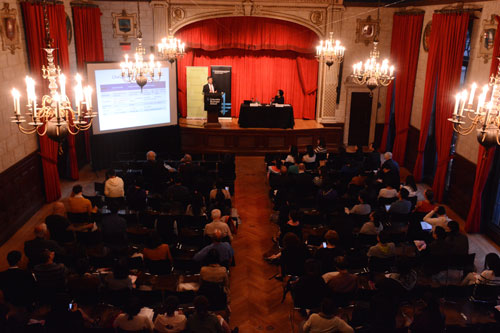On October 14, 2015, Prof. Yuan Zhigang was invited to give a speech at the sixth annual university-wide N.T. Wang Distinguished Lecture Series during his visit at Columbia Business School as a visiting professor. The theme of his speech was “Social Welfare: Does It Have a Place in China's Evolving Economy”, which attracted many faculty and students. After that, Columbia University held a big reception for Prof. Yuan, during which he and the participants had a lively discussion on Chinese economy. Here’s his main view in the speech:
The problem of China’s social welfare system is getting more serious because of an aging population. Lots of data show that China has to conduct a reform in the social welfare system, especially the Basic Endowment Insurance System of the Town Staff and Workers.
There are three ways to reform. The first is to adjust the population mainly by raising the retirement age and birth rate. Because retirees in China are relatively young, delaying retirement will effectively improve the sustainability of China’s social welfare system in the short run. But adversely this may slow down the renewal of human capital and lower the birth rate, which is harmful to future productivity.
The second way is to modify social security taxes. But actually the level of the tax has already got to an upper limit, which means that raising the tax will only bring more burdens to industries rather than more pensions to the old.
Thus, to make full use of the surplus capital would be the last choice, which can be achieved by two ways. First, invest in domestic private enterprises which have a higher ROI than state-owned enterprises. Second, invest in developing countries to combine their surplus labor with China’s surplus capital.
Anyway, we must keep the growth of productivity. That is the ultimate goal of Chinese economy, no matter which means is adopted: urbanization, cross-border investments, or late retirement.

Translated by Song Zhichen